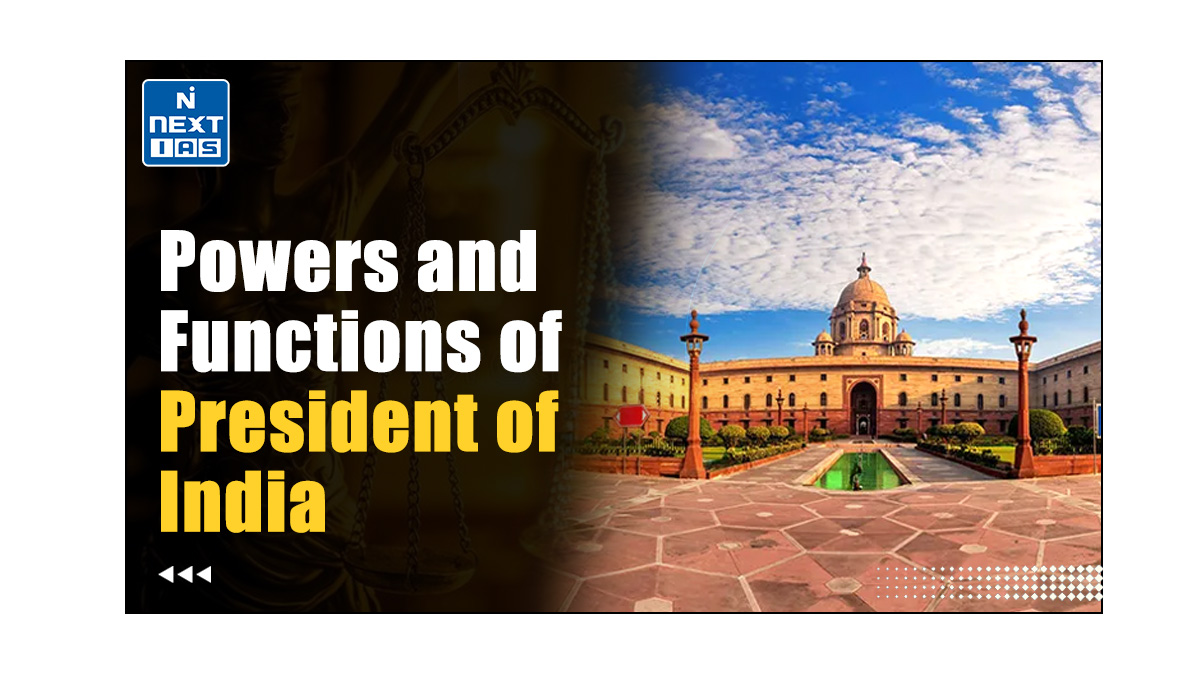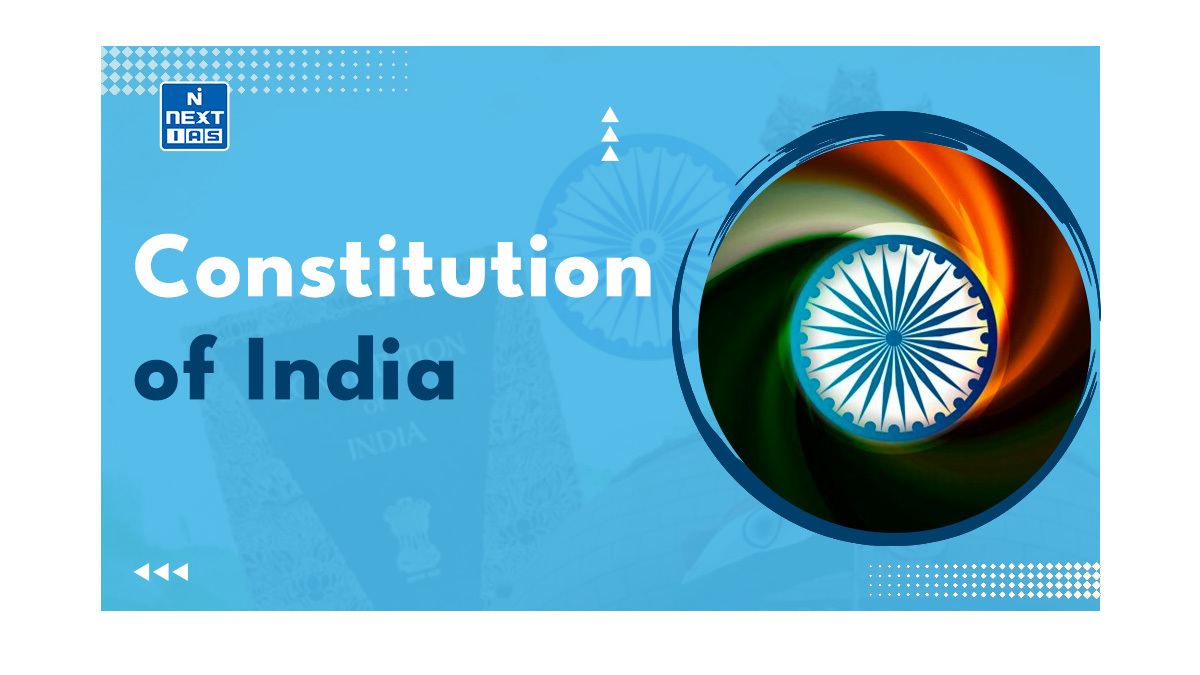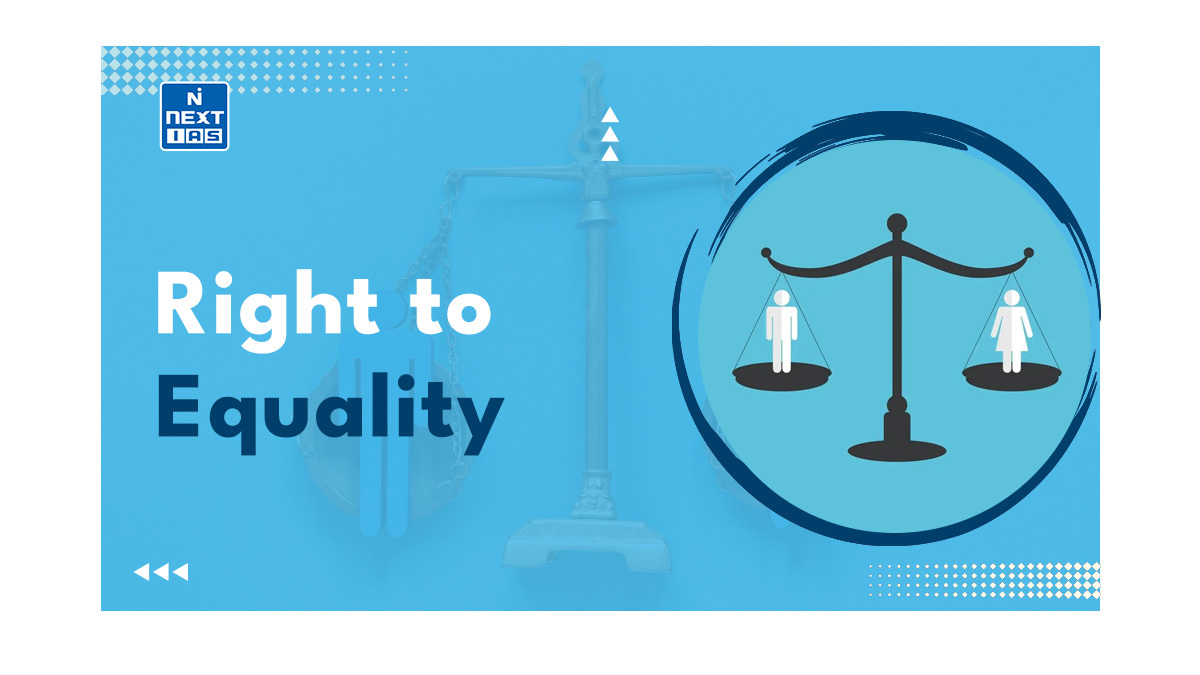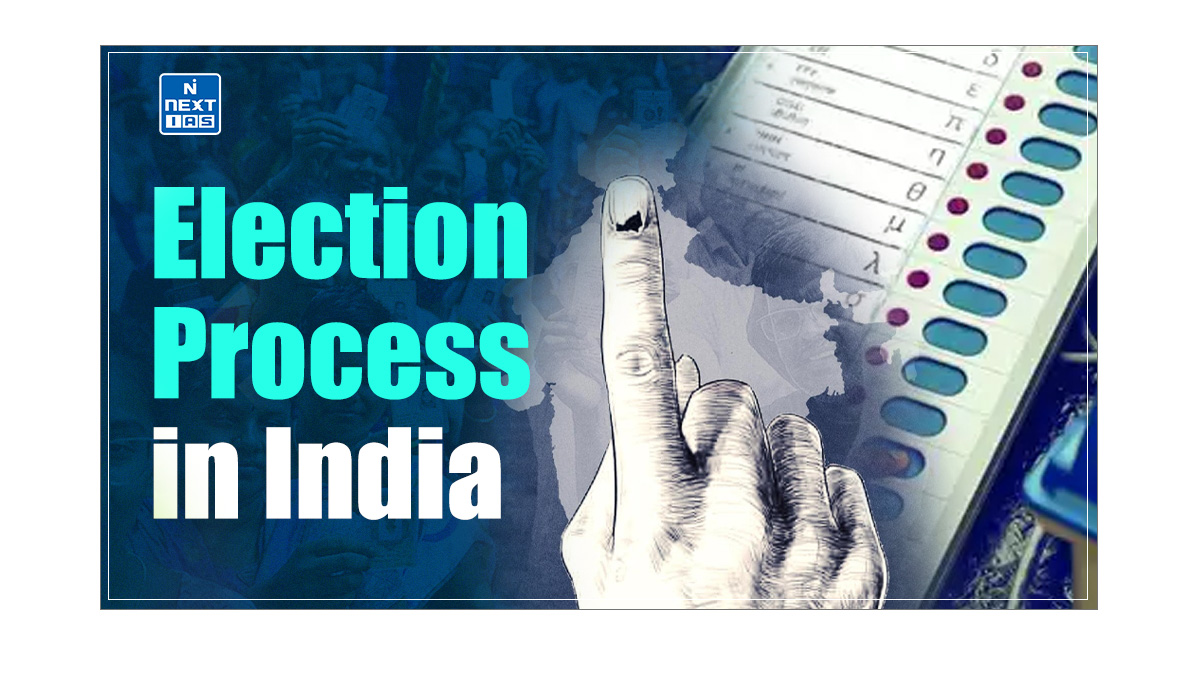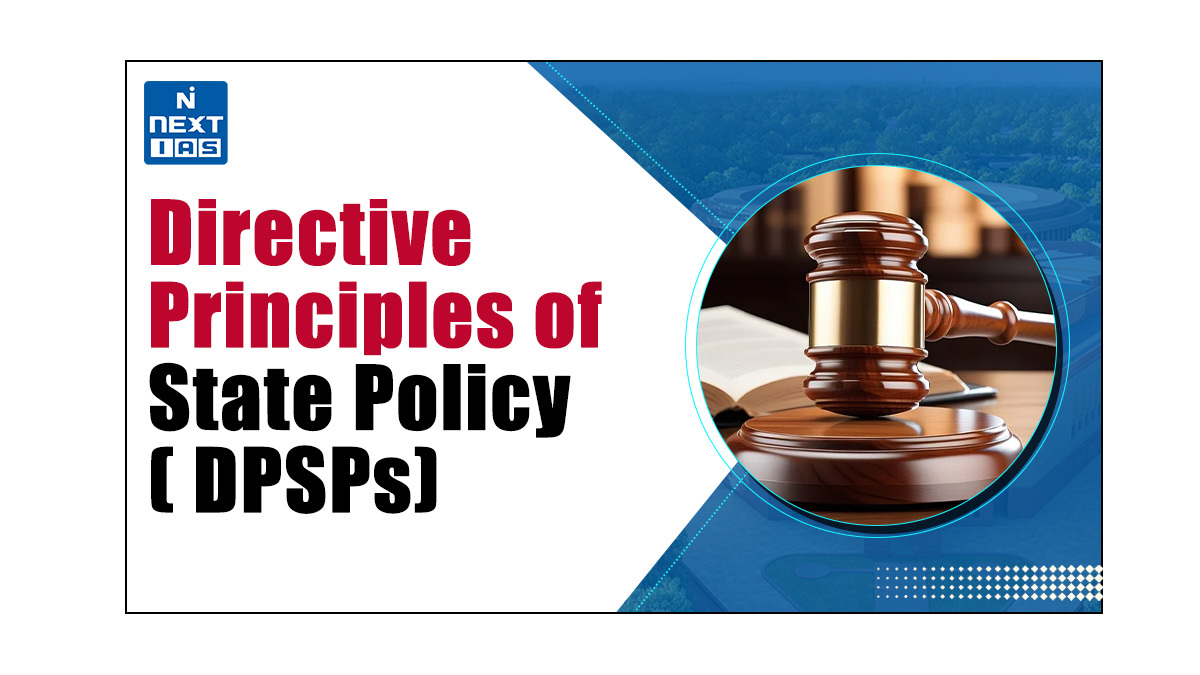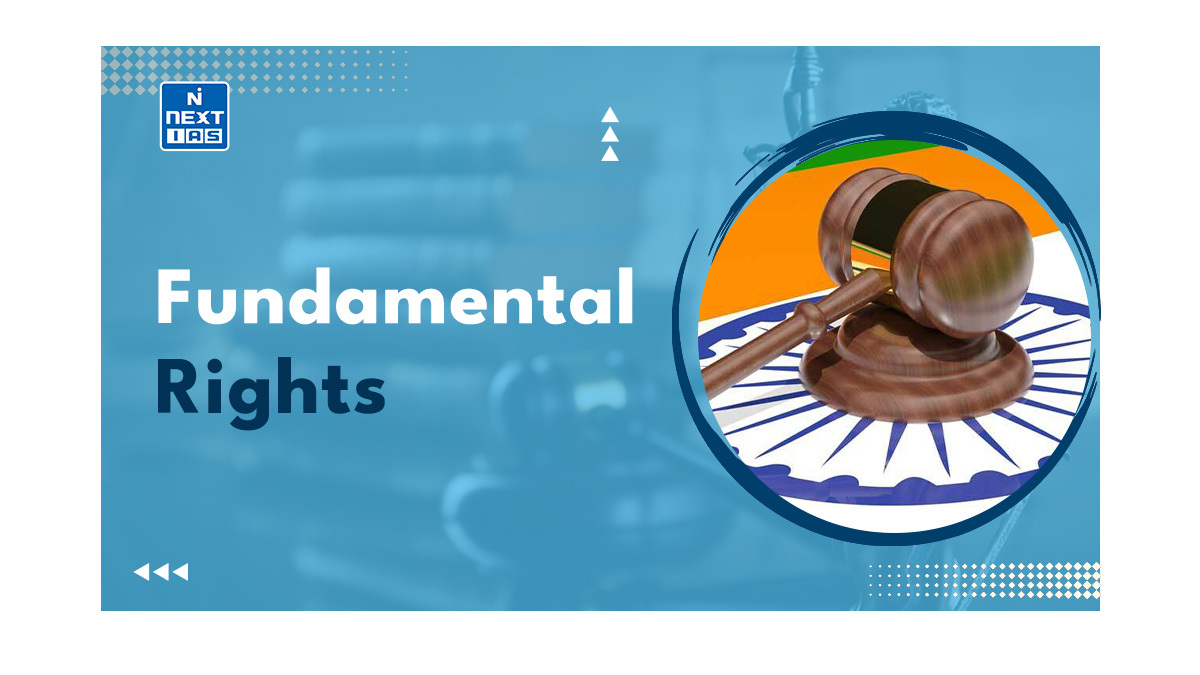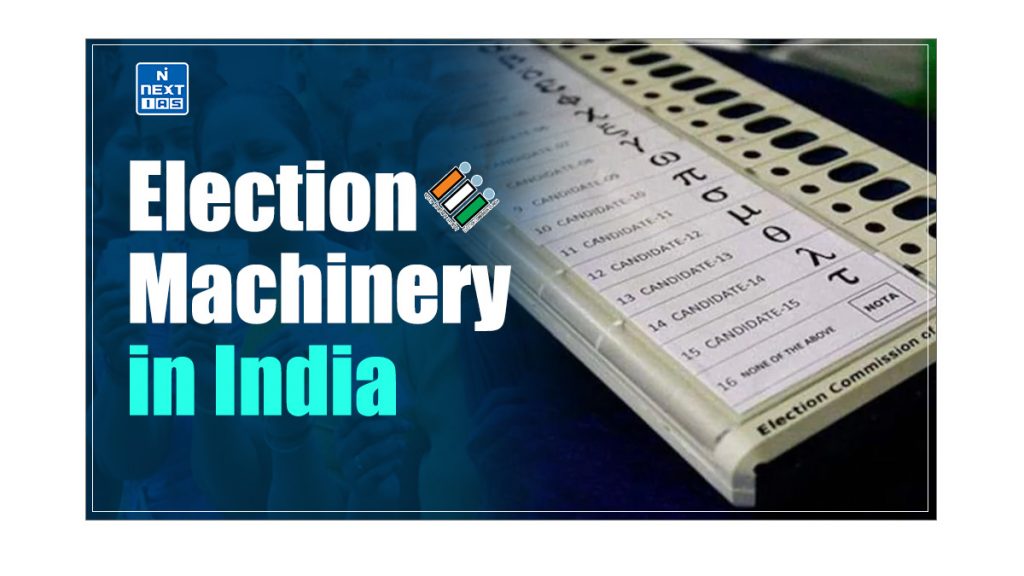
The robust Election Machinery in India, as established by the Constitution and other election statutes, is crucial for the efficiency and integrity of the election process. By ensuring regular, free, fair and transparent elections, it strengthens the Indian democracy. This article of NEXT IAS aims to study in detail the Election Machinery in India, including its meaning, components, various election officials and bodies, their roles & responsibilities and other related aspects.
What are Elections?
- Elections can be defined as the formal process by which citizens of a country or other political entity, such as a State or Local Government, choose their representatives or leaders through voting.
- Elections are fundamental to democratic societies as they embody the principle of “Popular Sovereignty”, where the legitimacy of the government derives from the consent of the governed.
Election Process in India
- The election process refers to a series of steps through which elections are conducted and representatives are chosen by voters in a democratic system.
- Constitutional and legal framework related to elections in India have defined a comprehensive and structured election process.
- Administered by the Election Commission of India (ECI), this process covers various stages from the announcement of elections to the declaration of results.
Read our detailed article on Election Process in India.
Election Machinery in India
- In order to conduct regular elections in accordance with the established electoral process, India has a comprehensive and multi-layered Election Machinery.
- With the Election Commission of India (ECI) at the top, there are various election officials and bodies which form part of the Election Machinery in India.
- Various components of the Election Machinery in India have been listed below as per the hierarchy:
- The Election Commission of India (ECI)
- Chief Electoral Officer (CEO)
- District Election Officer (DEO)
- Returning Officer (RO)
- Electoral Registration Officer (ERO)
- Presiding Officer
- Observers
Each of these components of the election machinery in India have been discussed in detail in the sections that follow.
Election Commission of India (ECI)
- Article 324 of the Indian Constitution vested the Election Commission of India (ECI) with the power of superintendence, direction and control of conducting the elections to the Lok Sabha and State Legislative Assemblies.
- The Election Commission of India (ECI) is a three-member body, comprising Chief Election Commissioner (CEC) and two Election Commissioners (ECs).
- The Chief Election Commissioner (CEC) and the two Election Commissioners (ECs) are appointed by the President of India.
- It performs various functions to ensure conduct of free and fair elections on a regular basis.
To know its powers and functions in a comprehensive manner, read our detailed article on the Election Commission of India (ECI).
Chief Electoral Officer (CEO)
- The Chief Electoral Officer (CEO) of a State/Union Territory is authorised to supervise the election work in the State/Union Territory subject to the overall superintendence, direction and control of the Election Commission of India.
- The Election Commission of India nominates or designates an officer of the Government of the State/Union Territory as the Chief Electoral Officer in consultation with the concerned State Government or Union Territory Administration.
District Election Officer (DEO)
- The District Election Officer (DEO) supervises the election work in a district.
- The Election Commission of India (ECI) nominates or designates an officer of the State Government as the District Election Officer in consultation with the concerned State Government.
Returning Officer (RO)
- The Returning Officer (RO) of a Parliamentary or Assembly constituency is responsible for the conduct of elections in the concerned Parliamentary or Assembly constituency.
- The Election Commission of India (ECI) nominates or designates an officer of the Government or a local authority as the Returning Officer for each of the assembly and parliamentary constituencies in consultation with the State Government/Union Territory Administration.
Electoral Registration Officer (ERO)
- The Electoral Registration Officer (ERO) is responsible for the preparation of electoral rolls for a Parliamentary/Assembly constituency.
- The Election Commission of India, in consultation with the State/Union Territory government, appoints an officer of the government or the local authorities as the Electoral Registration Officer (ERO).
Presiding Officer (PO)
- The Presiding Officer (PO) with the assistance of Polling Officers conducts the poll at a polling station.
- In states, the District Election Officer (DEO) appoints the Presiding Officers and the Polling Officers.
- In the case of the Union Territories, such appointments are made by the Returning Officers (ROs).
Election Observers (EO)
- The Election Commission of India (ECI) nominates officers of Government as Observers for Parliamentary and Assembly Constituencies.
- There are various types of Observers appointed for various purposes as discussed in the sections below.
General Observers (GO)
- The Election Commission of India (ECI) deploys General Observers in adequate numbers to ensure smooth conduct of elections.
- These Observers are asked to keep a close watch on every stage of the electoral process to ensure free and fair elections across the nation.
Expenditure Observers (EO)
- The Election Commission of India (ECI) appoints Expenditure Observers and Assistant Expenditure Observers who exclusively monitor the election expenditure of the contesting candidates.
Police Observers (PO)
- The Election Commission of India (ECI) deploys IPS officers as Police Observers at the State and District levels, depending upon the sensitivity of the Constituency, wherever required.
- The Police Observers monitor all activities relating to force deployment, and law and order situations and coordinate between the Civil and Police administrations to ensure free and fair elections.
Micro Observers (MO)
- The Election Commission of India (ECI) also deploys Micro Observers, along with the General Observers to observe the poll proceedings on the poll day in critical or vulnerable polling stations.
- The Micro Observers are chosen from the Central Government or Central Public Sector Unit (PSUs) officials.
- These Micro Observers observe the proceedings at the Polling Stations on the poll day right from the mock poll to the completion of the poll and the process of sealing of Electronic Voting Machines (EVMs) and Voter Verifiable Paper Audit Trail (VVPATs) and other documents to ensure that all instructions of the Election Commission of India are complied with by the Polling Parties and the Polling Agents.
- They also report to the General Observers directly about any vitiation of the poll proceedings in their allotted Polling Stations.
Conclusion
The Election Machinery, led by the Election Commission of India (ECI), is a robust and multifaceted system that ensures the smooth and impartial conduct of elections in India. It upholds the principles of free, fair, and transparent elections. As India’s democracy continues to evolve, this election machinery must adapt to new challenges while remaining steadfast in its commitment to upholding the principles of universal adult suffrage and a level playing field for all political participants, serving as a model for democracies worldwide.
GS - 2